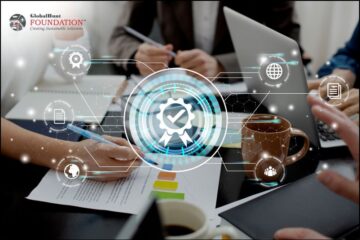Globally, millions of people live in poverty restricting them towards social and economic opportunities. Despite having a mindset and aptitude towards employment they are excluded due to the systemic barriers which are posed to them by their backgrounds. This created an enormous opportunity for companies to take up “Skill Development & Vocational Training” as a part of their CSR. By identifying, strategizing methods to reach, understand & incorporate the community youth & members towards skilling, re-skilling & up-skilling.
Moreover this also meant that companies can align untouched resources across geographies and integrate them under their business operations. Towards this a lot of initiative were directed where through diverse stakeholder partnership skill building programs were initiated.
This involved an extensive cycle of need assessment, skills identification, community mapping & mobilization, infrastructure setup, resources implementation, training calendar, industry partnership & placements and continuity of cycle.
However the impact of novel corona virus drastically changed the overall outlook of such projects where infrastructure became redundant and a need emerged for “inclusive employment” stating that diverse workforce from socially, economically & historically weak backgrounds should not be skilled but also technologically upgraded and made into a resilient workforce. This meant that companies should not only focus on giving technology based programs rather they should enhance yet at the same time conserve hands on skills, align them on the parameters of technology and ensure that the target beneficiaries are able to secure sustainable approach towards their jobs & lives.
A lot of business houses are exploring & revaluating their approach towards skilling as per the new of Covid and looking to establish an ecosystem that can create a futuristic manpower for Industrial Revolution 4.0


